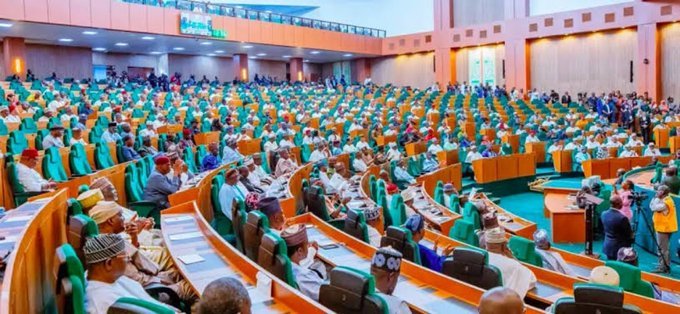Abuja, Nigeria — The Federal Government of Nigeria has officially suspended the proposed 15% import duty on petrol (Premium Motor Spirit) and diesel, a policy measure that had sparked debates across the petroleum industry and the wider economy. The announcement was confirmed by the Nigerian Midstream and Downstream Petroleum Regulatory Authority (NMDPRA), the agency responsible for regulating the nation’s petroleum supply chain.
The regulatory authority stated that the proposed implementation of the ad valorem import duty on imported PMS and diesel is no longer in view, signaling a significant shift in the government’s approach to fuel pricing and domestic refining strategy.
“The proposed implementation of the 15% ad valorem import duty on imported Premium Motor Spirit and Diesel is no longer in view. The Federal Government remains committed to ensuring stable fuel supply and affordable prices for Nigerians,” the NMDPRA said in a statement released on Wednesday.
Background of the Proposed Import Duty
Earlier in 2025, the Federal Government had announced plans to impose a 15% import tariff on imported petroleum products as part of broader economic reforms intended to strengthen domestic refining, reduce dependence on imports, and increase government revenue. The policy was framed as a protectionist measure aimed at encouraging local production while gradually reducing Nigeria’s reliance on imported petroleum products.
The proposed import duty was expected to apply to Premium Motor Spirit (petrol) and diesel products imported into the country, effectively increasing the cost for importers and potentially impacting end-user prices at the pump. Industry stakeholders, transport unions, and consumer advocacy groups quickly raised concerns over the potential inflationary impact of the duty, warning that it could raise transportation costs and exacerbate the burden on households already struggling with rising prices for goods and services.
Reasons for Suspension
According to NMDPRA, the suspension reflects the government’s commitment to maintaining affordable fuel prices for Nigerians, particularly at a time when the cost of living is high. The agency emphasized that the decision allows for further consultations with stakeholders in the petroleum and energy sectors, giving industry players and policymakers time to align on strategies that balance national revenue, domestic refinery utilization, and consumer welfare.
Experts say the suspension may also have been influenced by ongoing concerns over the capacity and operational challenges of local refineries, which remain below optimal production levels despite government investments in the Port Harcourt, Warri, and Kaduna refineries. Analysts argue that imposing a significant import duty before local production capacity is stabilized could create shortages, higher pump prices, and operational disruptions in the downstream sector.
Impact on Consumers
The suspension of the import duty is expected to ease immediate pressure on fuel prices, which have a direct impact on transportation, logistics, and general cost of living. With petrol and diesel being central to the country’s supply chain, changes in import tariffs are closely monitored by businesses and households alike.
“Had the 15% import duty been implemented, prices at the pump could have increased significantly, affecting transportation costs and driving inflation further. The suspension provides relief for now,” said Chijioke Okafor, an energy analyst based in Lagos.
Consumer advocacy groups welcomed the announcement, noting that it preserves access to affordable fuel, especially for low- and middle-income households that rely heavily on petrol for transportation and energy needs. The move also gives the Federal Government additional time to strengthen domestic refining infrastructure and reduce long-term dependence on imported fuel without immediately transferring costs to consumers.
Impact on Industry and Local Refineries
The decision has been largely welcomed by petroleum marketers and importers, who argued that the proposed duty could have disrupted supply chains and cash flow in the downstream sector. Many independent marketers rely on imported products to meet demand, particularly during refinery outages or maintenance periods.
While the suspension temporarily reduces the incentive for local refining, it also provides a window for policymakers to design measures that support domestic production without destabilizing fuel supply. Analysts highlight the ongoing challenges faced by Nigeria’s state-owned refineries, which have struggled with operational inefficiency, poor maintenance, and infrastructure decay over decades.
The Federal Government has outlined plans to revitalize the Port Harcourt, Warri, and Kaduna refineries, alongside promoting private-sector participation in modular refineries to ensure sustainable and continuous domestic production. These efforts remain central to the long-term goal of reducing import dependency and achieving energy security.
Government Policy Objectives
While the 15% import duty has been suspended, the Federal Government’s strategic objectives remain unchanged:
- Boost Domestic Refining: Encouraging the use of locally refined petroleum products is intended to reduce reliance on imports and create jobs within the refining sector.
- Ensure Stable Fuel Supply: By regulating tariffs, the government seeks to balance domestic production capacity with consumer demand, avoiding fuel shortages.
- Protect Consumers: The suspension demonstrates a focus on affordability and price stability, especially as inflationary pressures affect the cost of living.
- Generate Revenue: Tariffs are a potential revenue source for the government, but they are now being reassessed to prevent negative effects on the economy.
NMDPRA has stated that the government will continue to engage with stakeholders in the downstream petroleum sector to implement reforms that support sustainable growth, efficient distribution, and equitable pricing.
Public and Stakeholder Reactions
The suspension has drawn varied reactions from different segments of Nigerian society:
- Consumer Groups: Advocates praised the move as a win for ordinary Nigerians, emphasizing the importance of affordable fuel for households and small businesses.
- Industry Observers: Analysts see the suspension as an opportunity to strengthen local refineries and harmonize import policies with domestic production capacity.
- Transport Unions: Leaders of transport unions welcomed the suspension, warning that the import duty could have triggered strikes or reduced mobility, impacting commerce across the country.
“This decision buys time to ensure that Nigeria’s fuel policy is implemented in a way that benefits both producers and consumers,” said Femi Akinbiyi, a Lagos-based petroleum consultant.
Looking Ahead: Next Steps
The Federal Government has indicated that the suspension is temporary and consultative, providing space to review domestic refining performance and plan for sustainable implementation of tariffs. NMDPRA has called for structured stakeholder engagements, including petroleum marketers, transport associations, refinery operators, and civil society organizations.
These consultations aim to ensure that future policy adjustments support local production, generate government revenue, and maintain fuel price stability for consumers. Officials have also reaffirmed the government’s commitment to monitoring global petroleum prices, which continue to influence domestic pricing and supply strategies.
Conclusion
The Federal Government’s suspension of the 15% import duty on petrol and diesel represents a critical policy adjustment designed to protect consumers, stabilize fuel supply, and give the industry time to strengthen domestic refining capacity. While the measure alleviates immediate economic pressure, it highlights the challenges facing Nigeria’s downstream petroleum sector, including refinery inefficiencies, import dependency, and the need for sustainable regulatory frameworks.
As the government, NMDPRA, and industry stakeholders engage in further consultations, Nigerians and businesses alike will be closely monitoring the next steps in shaping a resilient, self-sufficient, and affordable petroleum sector. The suspension signals a temporary reprieve for consumers but underscores the long-term importance of domestic refining and strategic petroleum policy reform.














